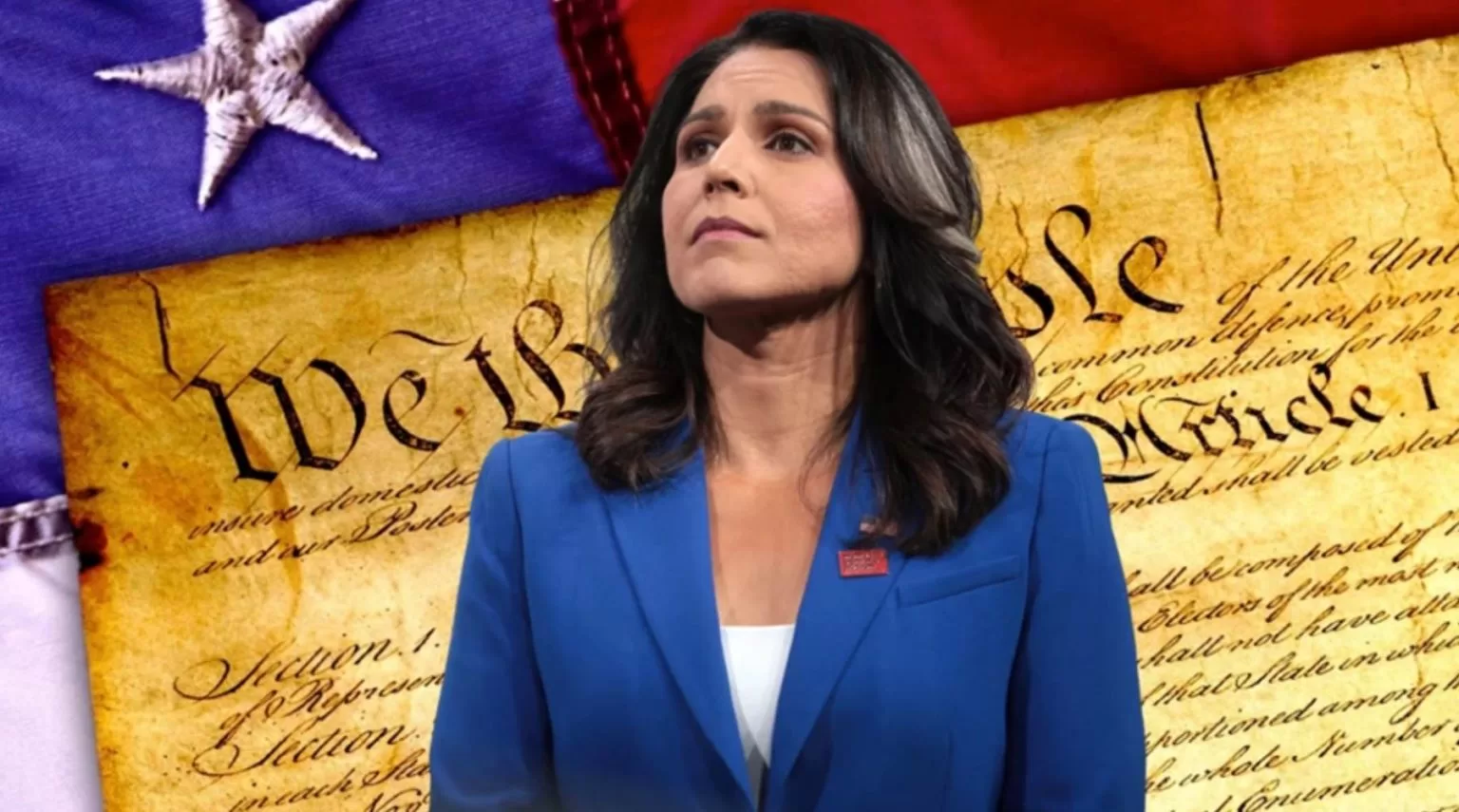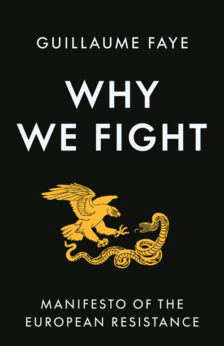Tulsi Gabbard, the outspoken political maverick, has sounded the alarm about the spine-chilling Orwellian undertones of the RESTRICT Act. Gabbard revealed that although the legislation is being sold as a mere TikTok ban, it’s actually a wolf in sheep’s clothing. She alerted us to the fact that shadowy, unelected officials in the Commerce Department would be granted carte blanche to decide which social media apps the public can and cannot use.
Ironically, Washington is engaged in the very activities that US politicians attribute to China. By leveraging its unparalleled influence over the world’s leading internet companies, the US has granted itself permission to scrutinize the private communications of foreign citizens globally. When the data-sharing practices between US intelligence agencies and their allies are taken into account, it becomes clear that they’ve established the most extensive espionage network on the planet.
As American politicians and media frequently express concerns about potential Chinese espionage, the striking lack of attention given to Washington’s own spying efforts should serve as an indication of where the real power resides. Information about the covert operations of the CIA and NSA often emerges years later through declassified documents or, on rare occasions, from whistleblowers like Edward Snowden, who reveal what has been happening behind the scenes. Speculation about their current activities is typically brushed off as conspiracy theories. In contrast, claims of Chinese espionage activities persistently circulate and are widely accepted as common knowledge, even in the absence of concrete evidence.
One cannot help but notice the eerie parallels with George Orwell’s 1984, in which the omnipresent Big Brother watches citizens’ every move. While Gabbard did not explicitly mention 1984, the similarities are simply too obvious to ignore.
In her fervent speech, Gabbard unveiled the terrifying truth about how the RESTRICT Act would permit these bureaucrats unrestricted access to users’ data, browsing history, and app habits. It seems that the long arm of the government is inching ever closer to resembling Orwell’s sinister Thought Police.
Gabbard courageously condemned the act for criminalizing VPNs, which could have potentially devastating repercussions – all under the cloak of “national security.” One is reminded of the ever-present surveillance and control in 1984: “There was of course no way of knowing whether you were being watched at any given moment.”
Exposing the alarming connection between this despotic bill and the notorious PATRIOT Act, which profoundly undermined Americans’ civil liberties by broadening government surveillance powers, allowing warrantless wiretapping, and permitting the indefinite detention of non-citizens, the RESTRICT Act appears to be taking a page straight from the same horror show. The harrowing consequence of Orwell’s grim prophecy echoes throughout our current reality: “War is peace. Freedom is slavery. Ignorance is strength.” In an era where the PATRIOT Act has facilitated an intrusive government presence, the RESTRICT Act threatens to destabilize the very foundations of democracy and personal freedom.
Tulsi Gabbard minced no words when she urged the American people not to be hoodwinked by this legislative trap once again. She lambasted those behind the RESTRICT Act, accusing them of being hell-bent on stripping away citizens’ rights, despite having sworn to uphold the Constitution and civil liberties. Gabbard’s admonition brings to mind another haunting line from 1984: “Don’t you see that the whole aim of Newspeak is to narrow the range of thought? In the end, we shall make thoughtcrime literally impossible, because there will be no words in which to express it.”
Gabbard expressed her deep concerns over the RESTRICT Act’s attempt to rob Americans of their right to challenge the government’s actions in court. She stressed that this bill poses a grave threat to the very bedrock of democracy and the rights enshrined in the Constitution. This dystopian scenario evokes Orwell’s blood-curdling portrayal of a crushing future: “If you want a picture of the future, imagine a boot stamping on a human face – forever.”
As Gabbard passionately implores Americans not to be duped by this devious piece of legislation, it’s clear that her voice is a beacon of truth in the darkness. She’s illuminating the murky depths of political scheming, much like Orwell did with his prophetic novel. It’s high time that people opened their eyes and listened to what she has to say.
In 1984, the protagonist Winston ponders, “How do we know that two and two make four? Or that the force of gravity works? Or that the past is unchangeable? If both the past and the external world exist only in the mind, and if the mind itself is controllable – what then?” The connection between this quote and the RESTRICT Act lies in the manipulation of reality to fit a specific agenda. It appears that the creators of the RESTRICT Act are borrowing from Orwell’s cautionary tale, seeking to control information and perception to further their objectives.
In an age where misinformation abounds, it’s crucial to question the motives behind such invasive legislation. Are we seeing the birth of a surveillance state akin to the nightmare Orwell envisioned in 1984? Are our freedoms slowly being chipped away under the pretense of security? The RESTRICT Act serves as yet another illustration of how the boundaries between reality and fabrication, liberty and domination, are growing increasingly indistinct.
As we witness the encroachment of government control into our daily lives, one cannot help but recall the omnipotent Thought Police and the ever-watching eyes of Big Brother. Tulsi Gabbard’s warning serves as a rallying cry for those who value their civil liberties and democratic rights.
Orwell described the Party’s desire to conquer the minds of its citizens: “Power is in tearing human minds to pieces and putting them together again in new shapes of your own choosing.” This creepy sentiment seems all too relevant when considering the RESTRICT Act’s potential to control not only our access to information but also our very thoughts.
Unquestionably, the US wields significant control over information and data collection – certainly more than any other nation. This dominance stems from hosting the world’s most powerful internet companies – such as Google, Microsoft, Twitter, and Meta – on its territory. Legally obligated to share data with the US government and authorities upon request, these corporations bolster American surveillance capabilities.
As we stand on the precipice of a world where the government’s power over our digital lives threatens to overshadow our right to privacy and autonomy, it’s essential to remember the cautionary tale of 1984. Tulsi Gabbard’s fervent plea serves as a reminder that we must be vigilant in our pursuit of truth, lest we find ourselves living in a society where “nothing was your own except the few cubic centimetres inside your skull.”
In the face of such intrusive legislation, we must echo Gabbard’s call to arms and demand transparency from our elected officials. We must hold them accountable for their actions and safeguard our fundamental rights: “Freedom is the freedom to say that two plus two make four. If that is granted, all else follows.”
As Tulsi Gabbard valiantly urges Americans not to fall prey to this cunning piece of legislation, her voice serves as a clarion call in the fog of deceit. She’s shining a light on the dark machinations of politics, much like Orwell did with his visionary novel. Now, more than ever, people have to be compelled to listen and act before it’s too late. Let us not forget the haunting message from 1984: “Who controls the past controls the future. Who controls the present controls the past.” The power to shape our future lies in our hands, and we must heed Tulsi Gabbard’s call to action before we find ourselves living in a world where Big Brother is no longer just a figment of George Orwell’s imagination.








“Yes” to all this but, from another view: haven’t we gotten here via free speech?
Gene Sharp prescirbes first step in “color revolution” is to “educate” people who are unaware that they are being oppressed: that there is “better way”, however happy they may be with what they have.
The view is typically Western, bourgeosie academic.
Centuries ago, the Pope disseminated “propaganda” to inform his flock. It was read in the town square by someone who could read. It had a gravitas. What could disturb the serenity of our king? Must be important!
Gene Sharp’s “education” would be just inciting rebellion in those days: a heretic to be burned at the stake.
With universal literacy however, we seem to have created more heretics than anything else.
Wasn’t all this free speech supposed to get us somewhere?
So, of course, the chosen censor the rest.
We have arrived!
Why give your enemy a fighitng chance after you’ve already defeated him and by doing so little more than running your mouth?
Maybe, winning is too easy?
Or maybe, we really aren’t all that educated?
Napoleon had the better way. So did Darius. Pizzaro.
But they all could find the Noth Star in the night sky one cannot see in the cities where all this chatter goes on.
The end of this is the end of gov’t brought on by none other than gov’t.